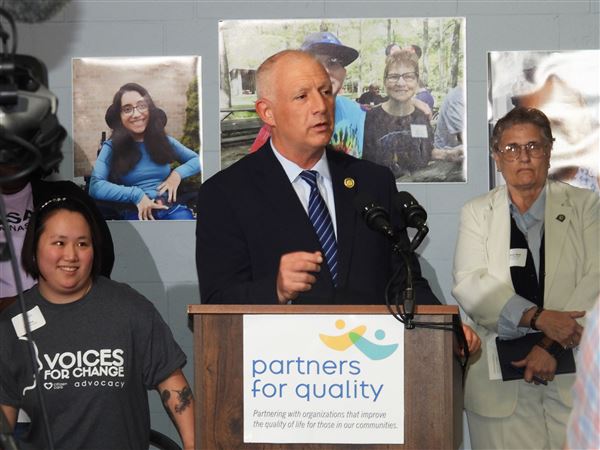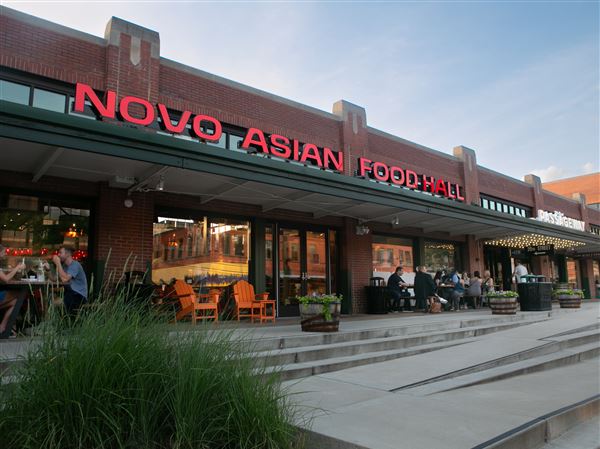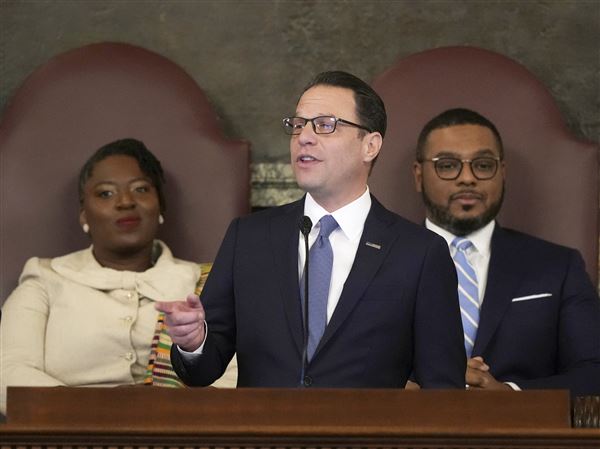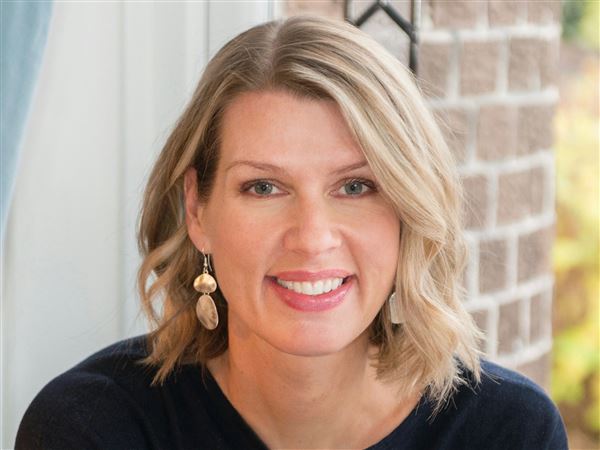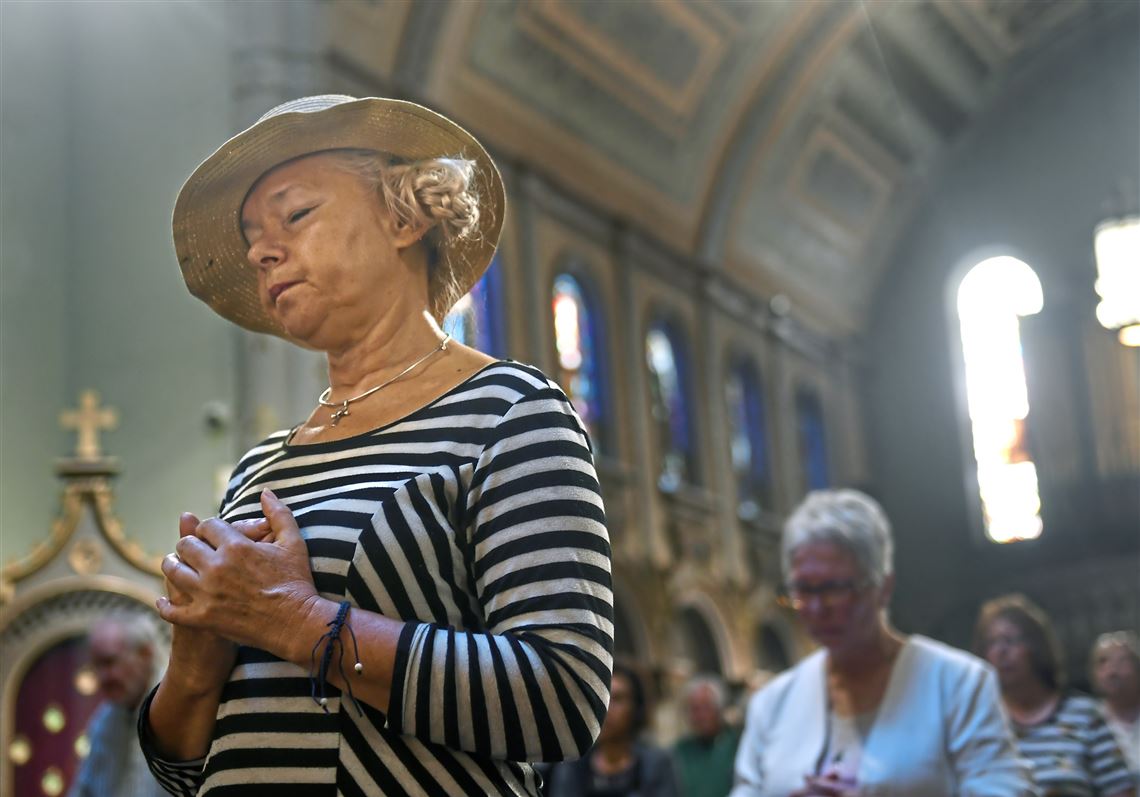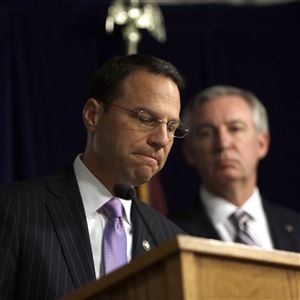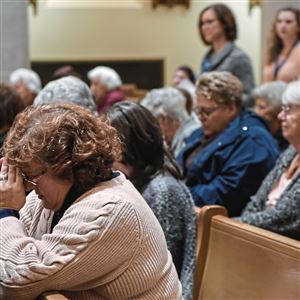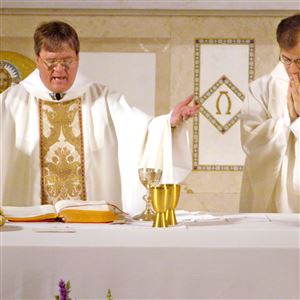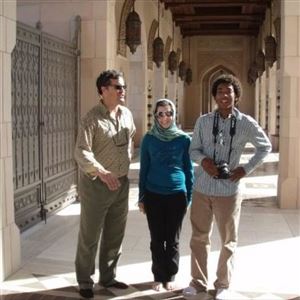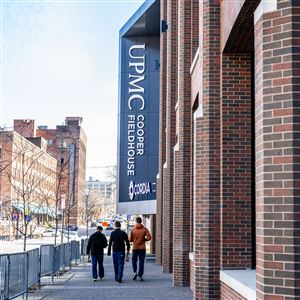When the Rev. James Farnan arrived as pastor at St. James Catholic Parish in Sewickley earlier this year, he said one longtime parishioner told him bluntly that over the decades, “we only had one priest change the Mass schedule, and we ran him out of town in six months.”
Now the Mass schedule is changing again, not just at St. James but throughout the Diocese of Pittsburgh as a massive, long-anticipated parish consolidation process gets underway officially Monday.
That includes new and often reduced Mass times, and Father Farnan pointed out that it wasn’t his doing but part of a diocese-wide effort in response to long-running declines in priests, parishioners and participation.
But even a historic reorganization like this is hardly the biggest of his worries — not in the wake of the Aug. 14 release of a statewide grand jury report into sexual abuse in six Roman Catholic dioceses over the past seven decades. A half-dozen priests who served or resided at St. James were accused of abuse in the report.
So the rage he’s hearing these days is less from people upset with Mass times and more from people like the woman who entered the confessional, slammed the door behind her and said, “I don’t need your ... sacrament!”
“I was in there 50 minutes,” recalled Father Farnan. “I listened.”
The woman had read the grand jury report in all its horrifying precision.
“She was pretty scandalized by the details,” he said. By the end, “She thanked me for listening. But I don’t think she’ll be a candidate for pastoral council.”
At just the time when the Diocese of Pittsburgh is implementing a change on a historic level — when it’s upending parish life for the faithful and urgently trying to find ways to evangelize so many of its young adults who drifted away long before any grand jury report — it also faces a crisis of trust.
Monday marks the start of the changes coming from the program called “On Mission for the Church Alive.” The 188 parishes in six counties across the diocese will be organizing into 57 groupings with the aim of them becoming parishes within the next two to five years.
Catholics, while still the largest religious population in southwestern Pennsylvania, have declined by 16 percent to 632,138 since 2000. Their Mass attendance and other key indicators of spiritual vitality have declined by 40 to 50 percent.
All of that happened before the statewide grand jury report was released in August. To be sure, the crisis of sexual abuse in the Catholic Church had simmered and flared repeatedly since the mid-1980s, but the Diocese of Pittsburgh has never been so shaken as it is now.
The report identified more than 90 cases in which priests were accused of sexual abuse over seven decades. Most occurred before the 1990s, but the cases were far more numerous than the diocese had ever previously acknowledged publicly, and the report also accused bishops of covering up.
On Friday, Pope Francis accepted the resignation of the former longtime Pittsburgh bishop, Cardinal Donald Wuerl, from his current position as archbishop of Washington,D.C. Although the pope defended his record, Cardinal Wuerl had been the most visible target of the grand jury’s criticisms.
The Diocese of Pittsburgh, meanwhile, has responded in a variety of ways, acknowledging and apologizing for the abuse and for its leaders’ failures, challenging areas of the report it considered inaccurate or out of context, holding a service of repentance at its cathedral and citing its efforts over the past three decades to improve how it prevents and responds to abuse.
Current Bishop David Zubik said he has been meeting in small groups with lay people who are upset by the report and want to suggest further reforms, and he also is holding daily lunch meetings with priests to hear how they’re handling things.
While it’s a challenge to cope with the report Bishop Zubik said there “is even something providential” about the timing.
Whether to respond to abuse victims and the anger of parishioners or to prepare for On Mission, “We have to rely more on Jesus and work together,” he said. “Only by the power of God’s grace is this going to work.”
One connection between the two epic developments in the diocese is the role of priests in parish life.
At listening sessions, services of lament and other gatherings being held throughout the diocese in the wake of the grand jury report, a commonly-voiced theme is that the scandal and cover-up resulted from “clericalism,” or an elite group of clergy making decisions affecting unsuspecting parishioners. Many are also calling for the ordination of women and married men.
At the same time, the parish consolidation is partly a response to the shrinking and aging ranks of priests, making it difficult for a single priest to cover all the needs of a large parish that were once handled by a group of priests. That has been one reason given for consolidating parishes, having fewer but better-attended and livelier Masses and drawing on the leadership of lay people in many areas.
“Most lay people really haven’t been preparing and haven’t been prepared to deal with there being less capacity in the clerical role of the church in a parish,” said Kevin Hayes, a member of St. Thomas More Parish in Bethel Park, which is being grouped with St. John Capistran Parish in Upper St. Clair.
He’s also a member of the group Social Justice Seekers, which has helped organize listening sessions in the diocese in recent weeks
“People are still expecting that a priest is always going to be available for communion and confirmation and funerals and weddings,” he said. “The fact is that’s going to be a struggle. Those type of pastoral issues are going to come to the forefront at the very time that people are having a real lack of trust in the institutional church. At the time you need the most good will, the emotional deposit that would help you give people the benefit of the doubt, people have the least amount of tolerance and the greatest frustration.”
Priests and others know, anecdotally, that some parishioners have stopped attending or withheld donations. Regaining trust will be a challenge.
Depending on location and circumstance, anywhere from two to seven parishes are forming new groupings that eventually will become single parishes — that is, with a single pastor and set of councils, but often with multiple church locations.
One of the most dramatic groupings is on Pittsburgh’s North Side, where six parishes are coming together, reducing the previous total of 18 weekend Masses to 10.
“We’ve tried to spread them out among the six parishes,” said the Rev. Lawrence DiNardo, pastor of Holy Wisdom Parish and moderator of the grouping’s team of priests. “Some people are lamenting they’re missing their Mass, but I haven’t had anybody really vocalize opposition.”
Each parish has its story. At St. Peter in Allegheny Center, worshippers at midday Mass on Friday said they’ll miss their church’s historic connection to Benedictine priests who have worked there for generations. That arrangement is ending with the consolidation.
“It really is just sad because we’ve been Catholic our whole lives, but until we came to the North Side, we had never had a strong relationship with any of our priests in the past,” said Crystal Manke, attending Mass with her 6-year-old son Bennett. The Benedictines “are very cheerful, joyful and community-oriented. They made us feel welcomed in a way we never were before.”
Even with the parish changes, and with the grand jury report, she said: “We’re Catholic. We’re not going anywhere. We’re here for the long haul. I can’t walk away from the truth.”
Outside the sanctuary of Most Holy Name of Jesus Parish on Troy Hill earlier last week — another of the six North Side parishes — Cathy Baysek voiced similar thoughts. She was confirmed there as a child and now teaches religious education to special-needs children and adults.
“No one likes change, but we have to adjust to it,” she said. “We have no choice. We have to have faith.”
The Rev. James Orr, who has been pastor at Most Holy Name, will be part of the ministry team of the new grouping. His main focus will be on the parish’s famous ministry — St. Anthony Chapel, home to thousands of relics of Catholic saints. He will be on working to have the chapel qualify as a “national shrine.” That will include, among other things, a daily Mass and a liturgically rich weekend service, so the new Mass schedule will now include Mass at the chapel on late Sunday mornings.
Managing the shift is a challenge in the grand jury aftermath.
“It’s certainly added to the stress levels,” Father Orr said. “The first thing any pastor has to do is develop the trust of the people.”
Some people are outraged, but others are supportive.
“In the 10 days after the report was released, I went out to dinner five times,” he said. “Total strangers picked up the check. [One left a note saying,] “I know it’s a tough time for you.”
And a waitress told him her Pentecostal church was praying for Catholics.
Bishop Zubik said he has heard similar stories from other priests.
The first task of the new parish groupings, he said, is to “put full attention on building relations with people.”
Peter Smith: petersmith@post-gazette.com or 412-263-1416; Twitter @PG_PeterSmith.
First Published: October 14, 2018, 3:17 p.m.

